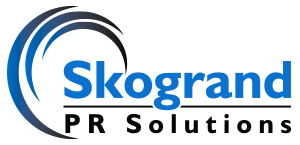At MnSearch‘s “Challenging the Assumptions in SEO & SEM” event last month, Ryan Berkness (founder of PR Caffeine) and Claire Wyatt (senior analyst of measurement and activation at Ovative/group) addressed pressing search engine marketing issues. Berkness and Wyatt used their personal speaking styles to relay their brand’s ideas. Berkness, with an engaging question/answer style presentation, reminded us about the quality of user experience and services offered, and the (almost) misleading relevancy of Google rankings. Wyatt, through interesting anecdotes and visuals, explored the faults associated with one-sided SEO data measurement. Multi-touch attribution, she explained, syndicates many layers of SEO and data measurement to accommodate for otherwise blind spots. Both speakers answered questions following their presentations.
Beyond feeling good from sharing their knowledge with others, Berkness, Wyatt and their respective organizations benefited from this MnSearch speaking engagement. Here’s what they gained – and what you can possibly gain – from a public speaking engagement.
Speaking engagements serve as another marketing platform.
As marketers, we are always looking for the best ways to put our expertise in front of an audience. Speaking engagements are another resource for doing just that. When you speak to an audience, you are in direct control of your brand in a different way than any other strategic platform. These events are an easy outlet to simultaneously provide information and also make a business impression. Like other marketing campaigns, it can lead to new business. Recording a speaking engagement for your website and/or YouTube channel serves as another way to leverage the opportunity to reach more prospects.
You build rapport.
Speaking engagements not only allow for you to spread your company’s name and mission; they provide an opportunity to create the personal and professional connection that would otherwise not exist. Wyatt and her anecdotal bitmoji are now what I will think of when someone mentions optimization…her presentation created a link in my mind to her person and her area of expertise. She created a reputation with me and the other audience members. Speaking at such events is also an easy opportunity to network with other thought leaders and participants before and after the presentation. We live in a world where connections are incremental to making an impression. Giving and discussing advice face to face is a surefire way to do so.
Speaking engagements are meaningful and personal.
Search engine optimization, Google Analytics, algorithms…the keywords of these lectures are topics that strategic communicators read about daily and via numerous outlets. Putting a face or voice to a strategy is memorable, and meaningful. Now, if I hear someone mention the cheapest route to ranking higher on the Google search page, I picture Ryan Berkness chuckling, and reminding us that a number means nothing without a worthy landing page. My experience with him is authentic, and stands out among other common SEO phrases. Listening to someone in person can create a novel, authentic connection that is usually lacking in a digital world.

